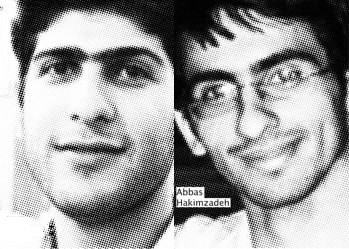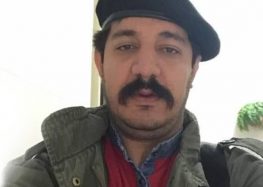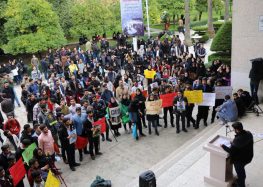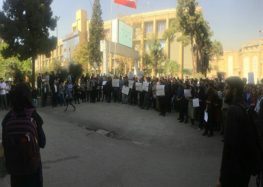Detained Students Tortured and Beaten to “Fabricate Evidence”
Intelligence Officials Halt Release of Detainees
(26 May 2009) Six students from Amir Kabir University who have been released on bail following a group of student detentions on 5 February and 24 February, have reported being harshly interrogated, beaten over long periods of time, and tortured in an effort to force them to confess to illegal activities.
They were coerced to confess to relations with the United States, Israel, and the Mojahedin (MEK) opposition group, which was formerly an armed group considered a terrorist organization, according to the International Campaign for Human Rights in Iran.
Three students remain in detention. Abbas Hakimzadeh and Mehdi Mashayekhi remain in prison on intelligence officials’ orders and are reportedly in dire condition, while no information has emerged about Masoud Dehghan.
“No one can accept that innocent students acting within their internationally protected rights have been illegally arrested, detained, ill-treated, and tortured in an effort to extract confessions of major national security crimes,” said Aaron Rhodes, a spokesman for the Campaign.
“These students have been denied access to legal counsel, and intelligence officials have interfered with the process. The Iranian state and the responsible officials must be held accountable for the health and safety of these young people,” he added.
The mother of Abbas Hakimzadeh, who was allowed to visit him twice in the past 10 days, told the Campaign that her son had been tortured and beaten and was in poor physical and psychological health. Hakimzadeh suffers from a spinal problem and had an operation before he was arrested and also has a speech impediment. According to his mother, he was unable to communicate at all due to ill-treatment he had suffered. He remains in solitary confinement in ward 209 of Evin prison, where he continues to be interrogated.
The Campaign has also received reports that Mehdi Mashayekhi, also still in detention, is suffering from psychological problems as a result of being ill-treated.
Judge Haydarifar, the deputy of Judge Haddad who is in charge of the students’ cases, told the students’ families that Hakimzadeh and Mashayekhi did not cooperate with the interrogators and that, despite a promise to release them four days ago, intelligence officials refused to allow the judge to release them. He told the families of Hakimzadeh and Mashayekhi that they may be released after the election.
Abbas Hakimzadeh’s family was informed that he would be tried by the Revolutionary Court, branch 30. His lawyer, Yusef Mowlaiee, stated in a student organization gathering on 18 May: “I am a lawyer without any function because I am not able to read files and visit my clients. I don’t even get any response from the Judiciary. As the detention of students lasts long it indicates that there is not enough evidence. The long interrogation behind closed doors indicates that evidence is being fabricated while the students have no access to their lawyers.”
Six other detained students were released on bail. Kourush Daneshyar, Hosein Torkashvand, Esmaiel Salmanpur, Nariman Mostafavi and Yaser Torkaman were released on 25 April on a bail between $200,000 (200 million Toman) and $300,000 (300 million Toman), and Ahmad Ghasaban was released on 11 May 2009 on $200,000 (200 million Toman) bail. Majid Tavakoli was ordered to be released on bail, but is still in jail although he has posted bail.
“The violation of students’ rights in an effort to silence their voices and intimidate their peers is not only contrary to Iran’s international human rights obligations, it also is a totally dysfunctional policy from a political and social perspective,” Rhodes added. “We are appealing for an end to such arrests and the immediate release of all detained students, and that outstanding politically-motivated charges are dropped.”






